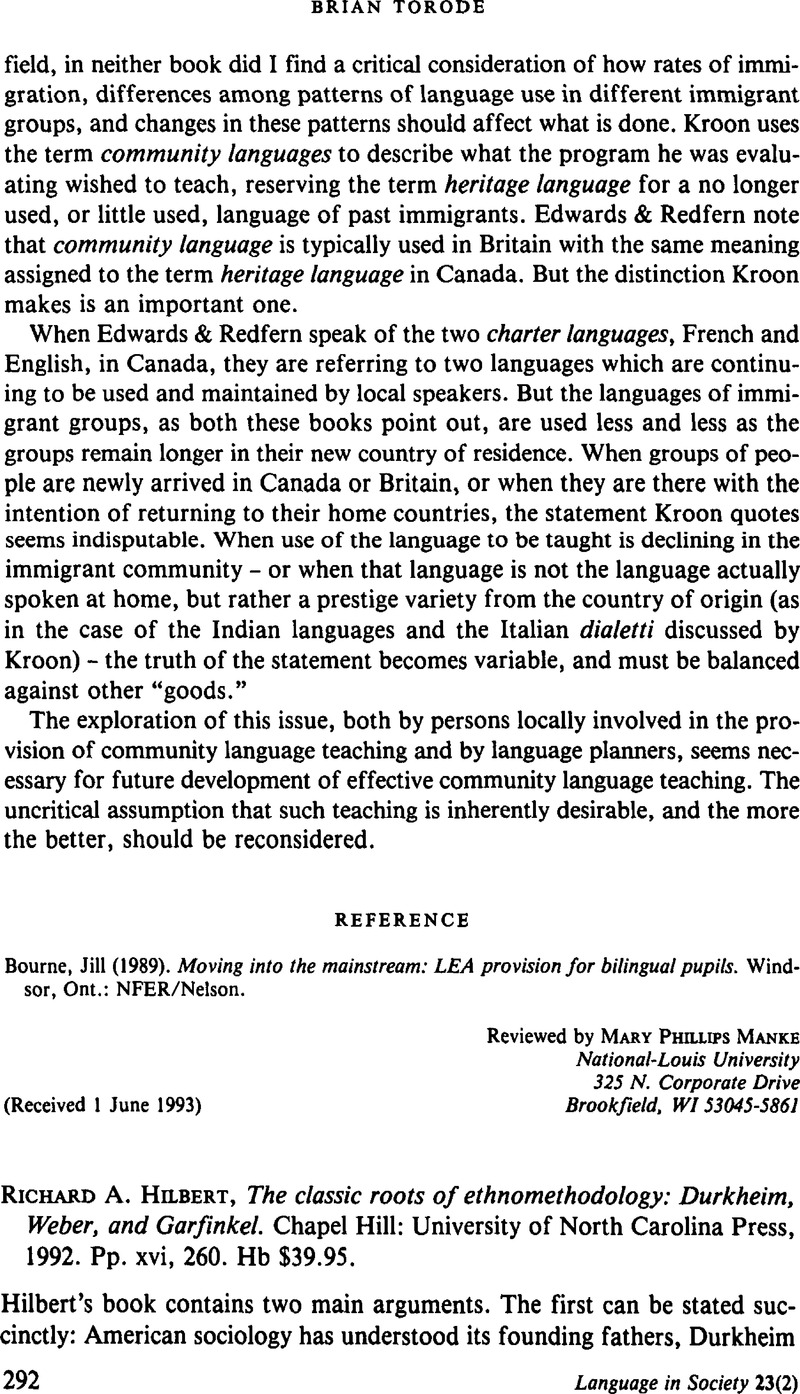Wilson, Thomas P. (
1991). Social structure and the sequential organisation of interaction. In
Boden, Deirdre &
Zimmerman, Don (eds.),
Talk and social structure: Studies in ethnomethodology and conversation analysis,
22–
43.
Cambridge:
Polity.
Google Scholar 